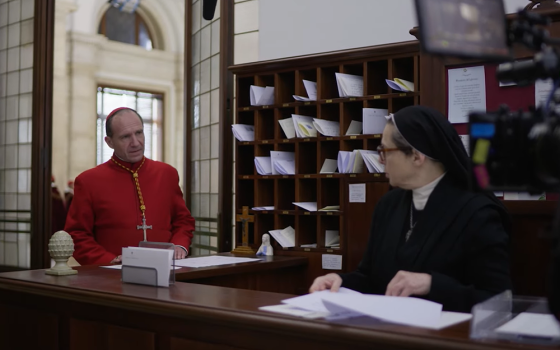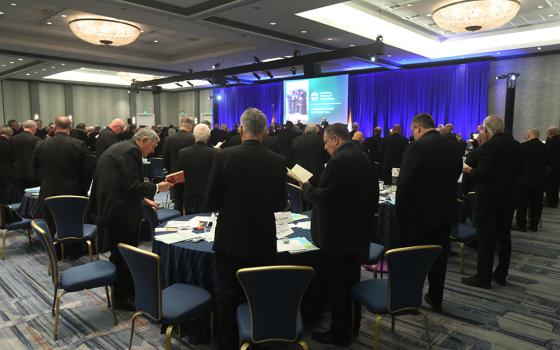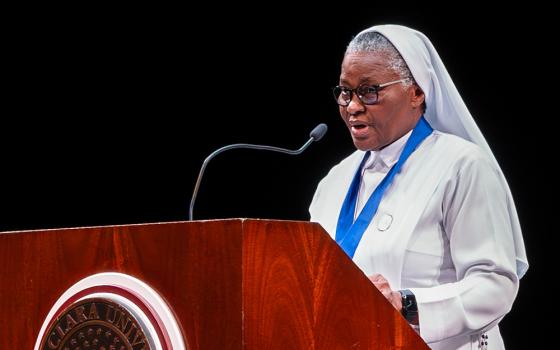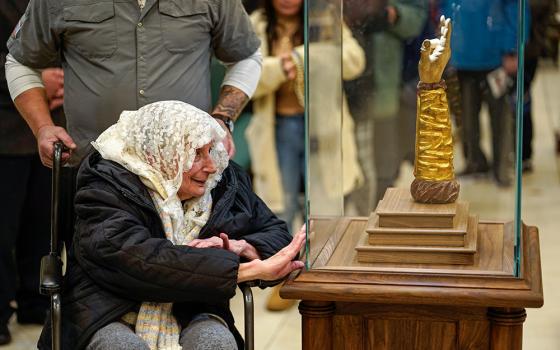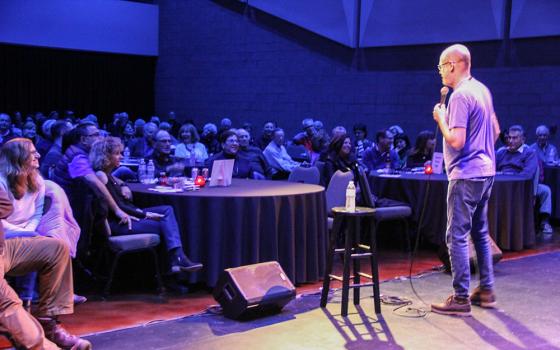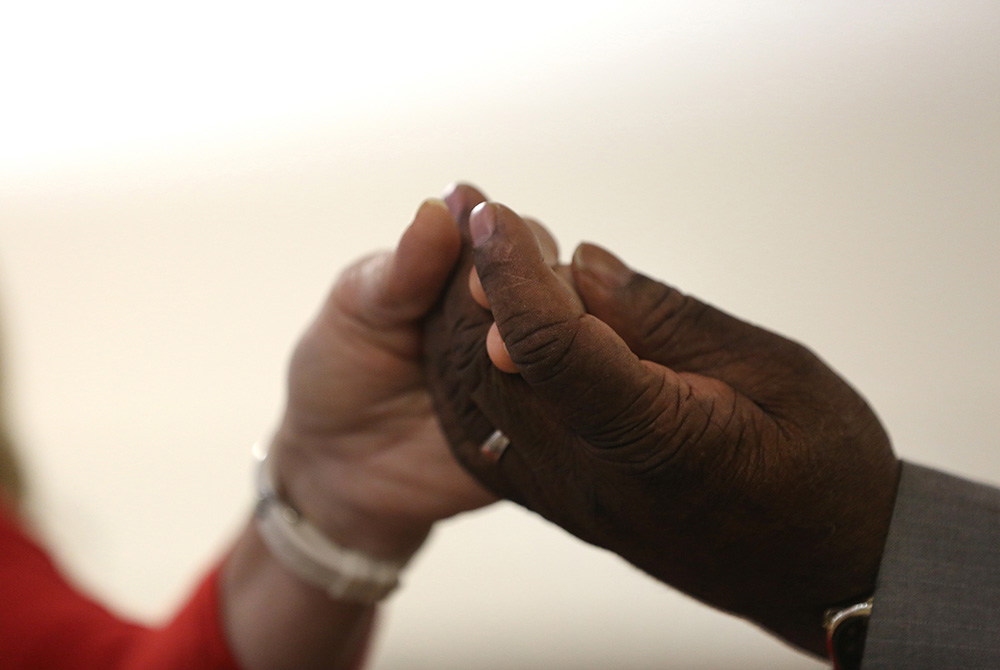
A woman and man join hands during the Our Father during Mass. (CNS/Bob Roller)
What do you think they were looking for, those people of ancient times who hoped for a savior? We tend to think of the Jews of Jesus' day as people waiting for the Messiah. Hundreds of books, movies, poems and plays, not to mention theological and biblical studies, have given their take on this idea. Then there's the question that naturally follows: Why did some people find their expectations met in Jesus while others, the majority, did not?
Isaiah wrote the best book of clues for detecting the presence of the Messiah — at least that's what the early Christians thought. In what we hear from him today, the prophet tells people to cast away all fear because God was coming to them with "divine recompense." Apparently, that meant that God would right what was out of kilter: The blind would see, the deaf would learn to hear and speak, and the dry land representing every other type of need would be sprinkled with springs.
Scholars remind us that the Gospels are faith reflections, not biographies or history. That means that they were written to be read in the light of Jesus' resurrection, the mind-blowing event that transformed believers' understanding of everything else. From the experience of knowing the risen Christ, they could look back and decipher all the signs the disciples failed to grasp during their sojourn with Jesus.
Mark recounts today's healing story with Isaiah in mind, then adds his own touches to bring it home to his audience, including us. Mark specifies that Jesus encountered the deaf person in the district of the Decapolis, a culturally Greek area. This emphasized the point that Jesus' fame and power were not limited by national or ethnic boundaries. There, in a land where Aramaic was at most a second language and probably not highly esteemed, people ask Jesus the Jew to lay his hand on a man whose hearing and speech were impaired.
We know very little about this person. Rather than give us a name or nationality, Mark keeps the person anonymous, thus able to represent everyone. As will happen more than once in Mark's Gospel, Jesus goes apart with the person who needs help. Then, in a reenactment of Psalm 40, Jesus put his finger in the man's ears and, with the intimacy of a kiss or communion, put his own saliva on the person's tongue. While such gestures were not unusual healing practices, here they portray an intimacy of encounter. This reminds us of Jeremiah, who said, "The Lord extended a hand and touched my mouth, saying, 'See, I place my words in your mouth.' "
Advertisement
Curiously, after Jesus healed the person, he told the onlookers not to tell anyone what they had witnessed. Why? As we saw in John's account of the miraculous sharing of bread, people often misinterpreted Jesus' mission. Too often, rather than be drawn to the depth of his message, they sought him as a wonder-worker, someone to relieve them of their burdens, perhaps even freeing them from Roman rule. To correct this, the Gospels portray discipleship as a long apprenticeship that comes to fruition as Jesus' followers begin to comprehend their vocation in the light of his death and resurrection. Until disciples understand their vocation through Christ, they are more likely to preach their own ideas than the good news of Jesus.
Mark preserved this story, not to impress us with Jesus' miracle, but to help us appreciate its meaning because that is more wondrous for us than any particular healing. This story tells us that concerned friends brought the needy person to Jesus, seeking what Isaiah called divine recompense. They turned to Jesus, believing and hoping that he could help the man live to his fullest capacity. Secondly, Jesus healed him through an intimate encounter. Finally, knowing that the outward signs were so much more obvious than any internal transformation, Jesus told them not to speak about what they did not yet fully understand.
Mark's way of framing this story reminds us that faith is a communal affair: We need others to lead us to Christ and others need us. Secondly, as Pope Francis never tires of reminding us, faith comes from an encounter with Christ. The community may lead us to Christ, but discipleship is the result of falling in love with the one who loves us into ever greater wholeness. Finally, the story reminds us that our vocation as disciples is less to teach and preach than to allow ourselves to be so transformed that others long for what we have been given. Then, as St. Francis of Assisi insisted, our lives will explain Christ's saving love better than any words we can say.



